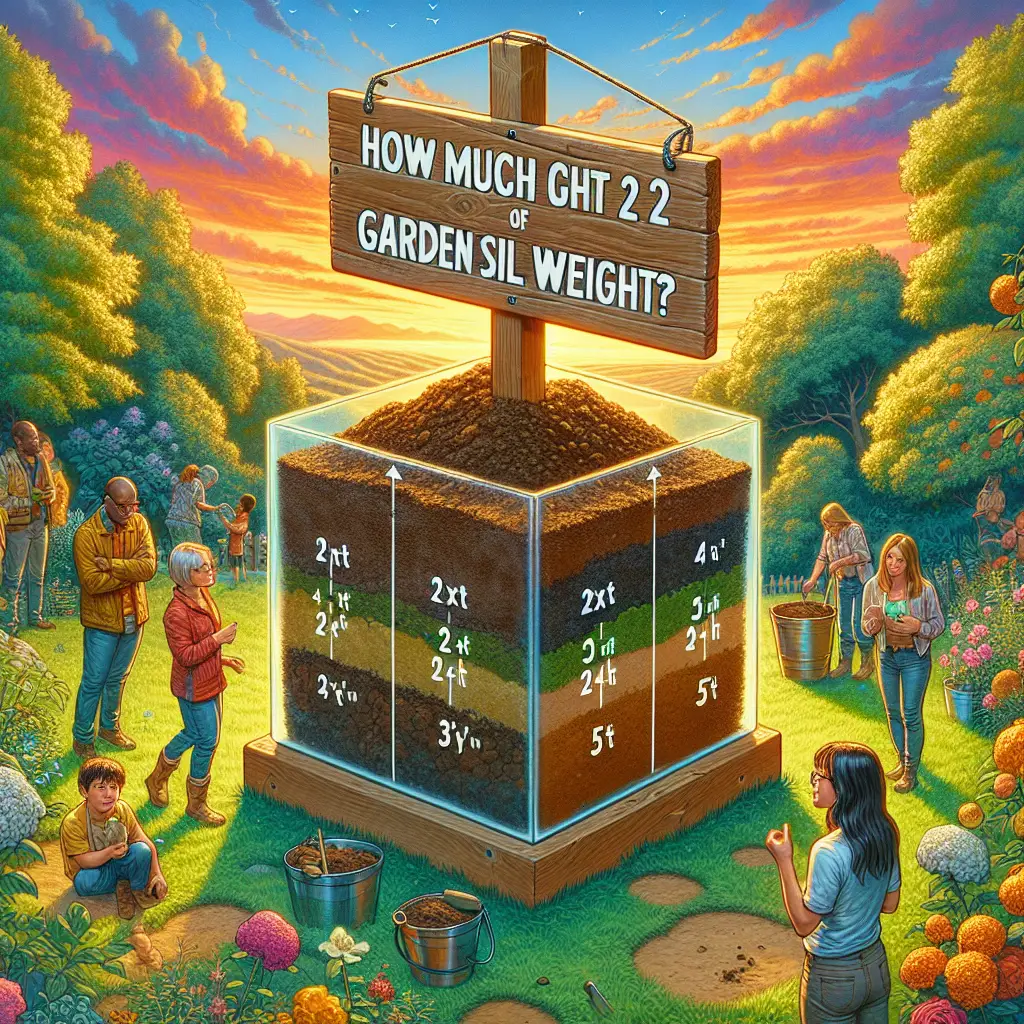How Much Does 2 Feet of Garden Soil Weigh?
When planning a gardening project, whether you’re filling raised beds, repairing lawn spots, or engaging in any landscaping work, it’s crucial to understand the weight of the soil you’ll be handling. Knowing the weight can help you determine delivery costs, the number of trips to the nursery, and the physical labor involved. In today’s post, we’re diving into the nitty-gritty of just how much 2 cubic feet of garden soil weighs.
The Weight of the Soil
The weight of garden soil can vary based on several factors, including moisture content, organic material composition, and soil type. However, a general estimate for a cubic foot of dry topsoil typically weighs around 40 pounds. Therefore, 2 cubic feet of garden soil would weigh about 80 pounds when dry. However, soil is rarely completely dry, and moisture can significantly increase the weight.
Moisture: A Weighty Matter
Moisture plays a drastic role in the soil’s weight. A cubic foot of soil can weigh up to 100 pounds when wet. Consequently, 2 cubic feet of wet garden soil could tip the scales at around 200 pounds. Before purchasing garden soil, it’s essential to inquire from the supplier about the conditions of the soil to anticipate the actual weight.
The Type of Soil
There are several different types of garden soil, each with its own specific weight characteristics. For example, clay soils are denser and therefore heavier than sandy soils or loamy soils. If your garden requires a particular soil type, this will impact the overall weight of the soil you need.
Factors Influencing Soil Weight
Here are a few factors to consider that could affect soil weight:
- Organic Material Content: Soils rich in organic matter, like compost or peat moss, may be lighter than mineral-heavy mixes.
- Particle Size: Finer particles, such as silt or clay, tend to pack more tightly and weigh more than coarser materials like sand.
- Compaction: Soil straight from the bag is generally less compacted than soil that has been sitting and compressing over time.
Calculating Soil Needs
If your garden project requires an exact estimation of how much soil you need, it’s helpful to use a soil calculator. These tools can help you determine the volume of soil needed based on depth, length, and width of your garden space. Remember, it’s always better to overestimate a little to cover any unforeseen soil compaction or spread.
Delivery and Handling
When you purchase soil, you might have the option to buy it in bags or in bulk. Bagged soil is easy to handle but can be more expensive per unit of volume. For example, the popular Miracle-Gro brand offers bagged garden soil which could be a convenient yet pricier option for small garden beds. On the other hand, bulk soil is more cost-effective for larger projects but requires a means of transportation and can be labor-intensive.
Handling the Heft
The sheer weight of garden soil can make it tough to work with, especially in large quantities. When dealing with heavy loads:
- Use a wheelbarrow or garden cart
- Enlist the help of friends or family
- Consider delivery services directly to your garden spot
Improving Your Soil
Once you have the soil on-site, think about improving its condition with further amendments. Adding organic matter can not only lighten the physical weight but also improve drainage and nutrients. Products like peat moss or compost can make a noticeable difference in the soil’s quality and ease of use.
Plan for Sustainability
As a responsible gardener, it’s important to think about the sustainability of your soil choice. Opt for organic and locally-sourced soil that will benefit your plants and the environment in the long term.
Conclusion
Understanding the weight of garden soil is foundational to any successful gardening project. While 2 cubic feet of dry garden soil weighs roughly 80 pounds, remember that moisture and soil type can significantly affect this number.
Ensure you account for all these factors when planning your garden to avoid surprises and ensure the smooth progress of your project. Happy gardening!
Next Steps
- Use a soil calculator to plan your purchase accurately
- Consider the type of soil that best suits your garden needs
- Opt for organic and sustainable soil options whenever possible
- Use proper equipment to handle the weight of the soil safely
Good luck with your garden project, and remember to consider the full scope of soil weight when planning your work!


